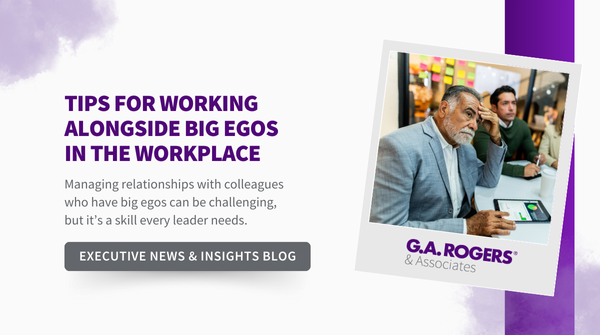Tips for Working Alongside Big Egos in the Workplace

Big egos in the workplace can present challenges, but they can also provide opportunities for growth if managed effectively. People with inflated egos often exhibit confidence and a strong drive, but their behavior can lead to conflicts, affect the attitude of coworkers, and disrupt team relationships. Handling such individuals requires a blend of emotional intelligence, clear communication, and strategic leadership.
Encourage a Culture of Respect and Collaboration
Promote an environment where teamwork and mutual respect are prioritized over individual achievements. Encourage collaboration by assigning team-based projects and emphasizing shared goals. Highlighting the collective success of the group can help balance ego-driven behavior and reinforce the importance of cooperation. Leaders should model humility and create a culture where respect and recognition are evenly distributed.
Provide Feedback
Big egos often resist criticism, but providing feedback framed positively can be effective. Focus on their strengths while pointing out areas of improvement in a way that doesn’t feel like a personal attack. For instance, instead of saying, “You dominate conversations,” say, “Your contributions are valuable, but ensuring everyone has a chance to speak will enhance the discussion.” This approach helps maintain their sense of self-worth while encouraging change.
Set Clear Boundaries and Expectations
Establishing boundaries is important when dealing with egotistical personalities. Be clear about roles, responsibilities, and acceptable workplace behavior. If their actions disrupt the team, address the issue privately and directly. Clearly outline the impact of their behavior on the team and the organization, tying it back to shared objectives. Consistency in enforcing expectations is key to curbing negative tendencies.
Use Their Strengths
Individuals with big egos often excel in areas where confidence is an asset, such as sales, negotiations, or public speaking. Assigning them tasks that draw upon their strengths can harness their abilities while minimizing potential disruptions. Recognize their contributions without overindulging their need for praise, and balance recognition by celebrating the achievements of others as well.
Encourage Self-Reflection
Encouraging self-awareness can help egotistical individuals see how their behavior affects others. Leadership development programs, coaching sessions, or 360-degree feedback processes can provide valuable insights. Subtle guidance through questions like, “How do you think the team felt about that approach?” can nudge them toward introspection and growth.
Seek Support When Necessary
If a person’s ego becomes unmanageable and affects workplace equilibrium, involving HR or seeking external mediation may be necessary. Addressing such challenges head-on with a balanced approach ensures a healthier, more productive work environment.
At G.A. Rogers & Associates, we care about our job candidates, our results, and our relationships.
We take the time to get to know each person, enabling us to make the best career matches. Visit our job board to browse the latest positions today.



